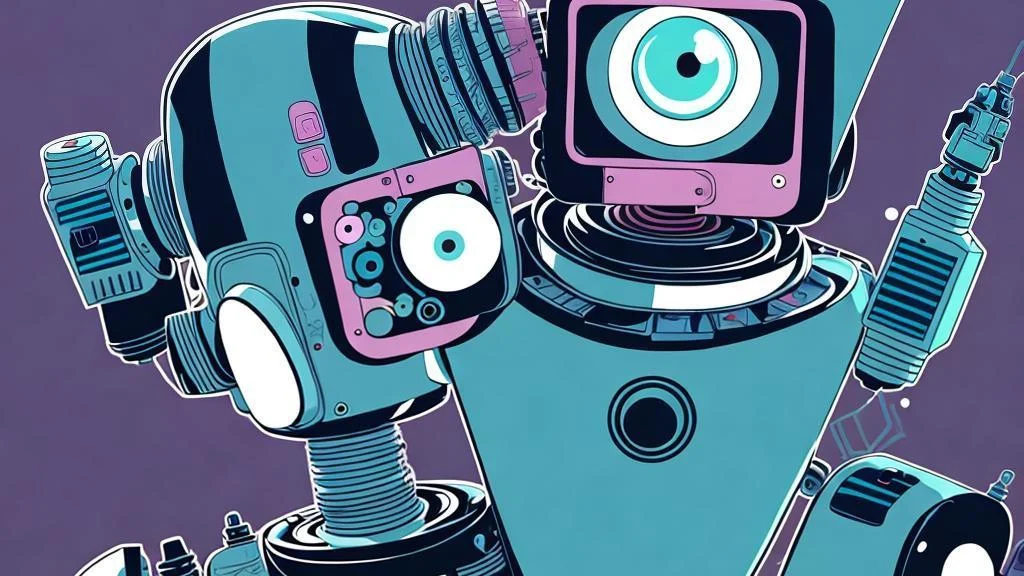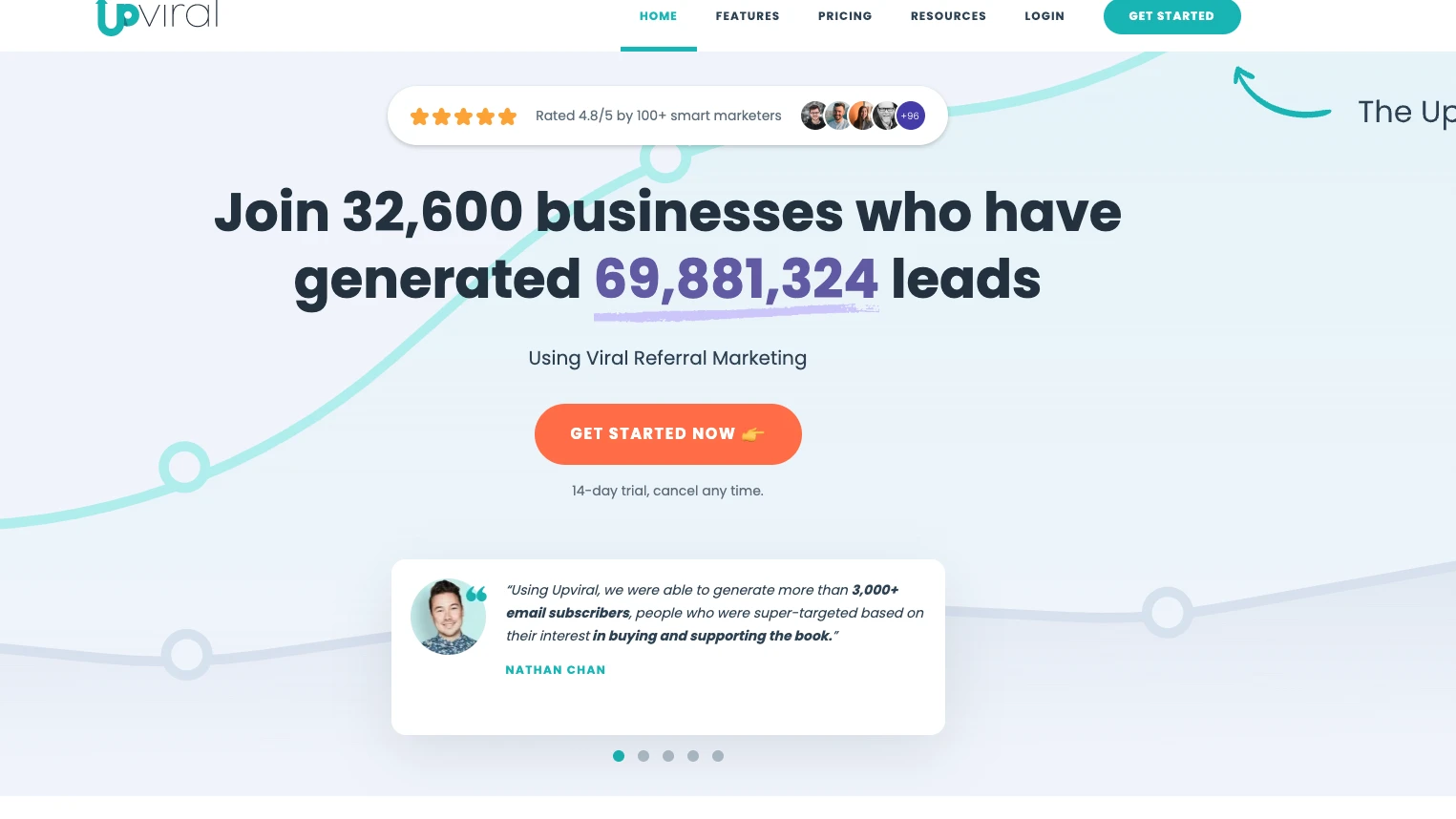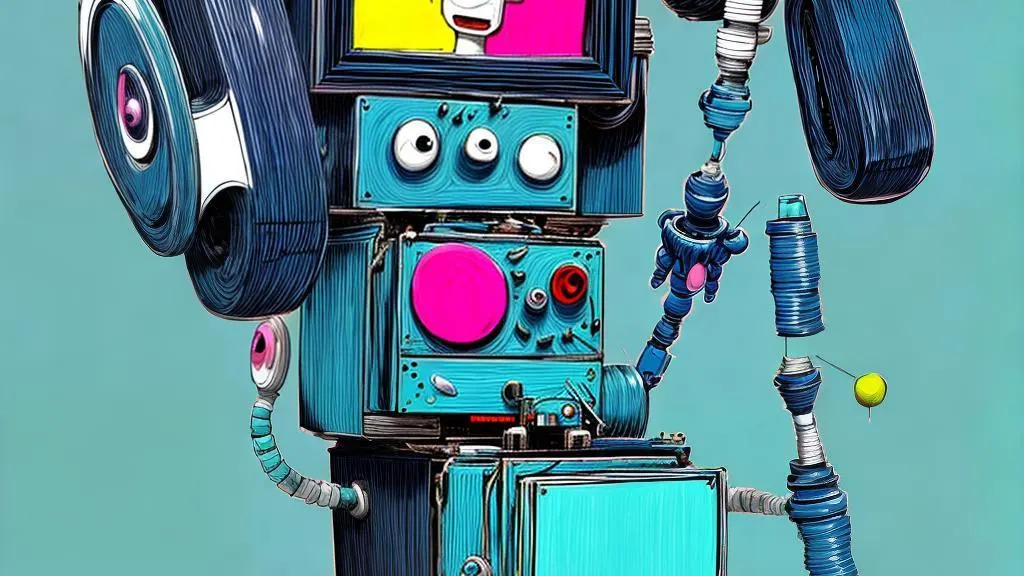Case study: Upviral - Transforming the Campaign Creation Workflow at Upviral
When I joined Upviral, a referral marketing platform, the company was at a pivotal point …

In today's digital landscape, the power of Artificial Intelligence (AI) is evident in various industries, including web development. Advanced AI algorithms have paved the way for converting images into functional websites, revolutionizing website-building. AI algorithms are enhancing efficiency and accuracy in web development by understanding the role of a Figma file, the steps involved in converting an image to code, and the evaluation of code quality.
While AI offers undeniable advantages, it is essential to consider its limitations and strike a balance between AI assistance and human expertise. Let's explore the fascinating realm of AI-assisted web development and its vast possibilities.
Artificial Intelligence (AI) has significantly transformed various industries, and web development is no exception. With the advent of advanced AI algorithms, building websites from just an image is now possible. In this article, we will explore how AI converts an image into functional website code, evaluates code quality, and examines AI's advantages and limitations in website building.
To comprehend how AI builds a website from an image, it is crucial to understand the role of a Figma file. A Figma file is a widely utilised design format in the web design industry. It contains essential information about the website's layout, elements, and design components. AI algorithms can recognize and interpret various aspects within a Figma file, such as text, images, buttons, and layout structure.
These algorithms employ sophisticated techniques and algorithms to parse the complex Figma file and extract the relevant information necessary for website conversion.
Once the AI system has analyzed and interpreted the Figma file, it can convert the image into actual website code. This process involves several steps, including image segmentation, style extraction, and content recognition.
By utilizing techniques like deep learning, neural networks, and computer vision, AI algorithms can accurately convert the image into code that replicates the visual design elements present in the original design.
Building a website involves converting the image into code and ensuring the code's quality. AI algorithms can distinguish between good and bad code during the website-building process. These algorithms employ specific criteria for code quality, such as adherence to coding standards, performance optimization, and browser compatibility.
Additionally, AI can automate code review processes, identifying potential bugs, security vulnerabilities, or optimization opportunities that human developers might overlook.
The use of AI in website building offers several advantages. Firstly, it significantly speeds up the development process, allowing developers to create websites more efficiently. AI algorithms can accurately convert images to code, reducing the need for labour-intensive manual coding.
Secondly, AI ensures accuracy in replicating the design elements, resulting in visually appealing websites. Lastly, AI can be cost-effective, saving businesses valuable resources by reducing the need for manual coding.
Despite these advantages, there are limitations when leveraging AI for website creation. One limitation is the customization aspect. While AI can efficiently convert images to code, customization options might be limited compared to human developers' capabilities.
Additionally, human oversight is crucial as AI algorithms are not infallible and may require human intervention in specific scenarios. Furthermore, relying on pre-trained models means that AI is only as good as the data it was trained on, posing limitations in systems involving new and unique design elements.
AI has the potential to complement and enhance the work of human web developers. By automating certain aspects of web development, AI can free up developers' time to focus on more complex and creative tasks. However, balancing human expertise and AI assistance is crucial to ensure the best possible outcomes. We can expect further developments and innovations in AI-assisted web development as AI technology advances.
AI has revolutionized the web development process by enabling the conversion of images into functional websites. AI algorithms can facilitate website-building by understanding the Figma file, leveraging sophisticated algorithms, and evaluating code quality.
While AI offers speed, accuracy, and cost-effectiveness benefits, it is essential to acknowledge the limitations and embrace a collaborative approach between AI and human developers. The future of AI-assisted web development holds great potential for further advancements and improvements in the industry.
As we embrace the integration of AI in web development, the future holds immense potential for advancements in the field. The ability to convert images into functional websites with speed, accuracy, and cost-effectiveness has transformed the industry. However, it is crucial to remember that AI is not infallible and must be accompanied by human oversight.
Collaborating with AI technology, web developers can leverage the automation capabilities of AI to free up time for more complex and creative tasks. By striking the right balance, we can harness the power of AI to create groundbreaking innovations in web development. The journey towards a future of AI-assisted web development is sure to bring exciting opportunities and improvements.
Some other posts you may like

Case study: Upviral - Transforming the Campaign Creation Workflow at Upviral
When I joined Upviral, a referral marketing platform, the company was at a pivotal point …
October 01, 2023
Read More
How to use Midjourney
In today's rapidly evolving digital tech space, artificial intelligence (AI) tools are transforming how we …
October 01, 2023
Read More